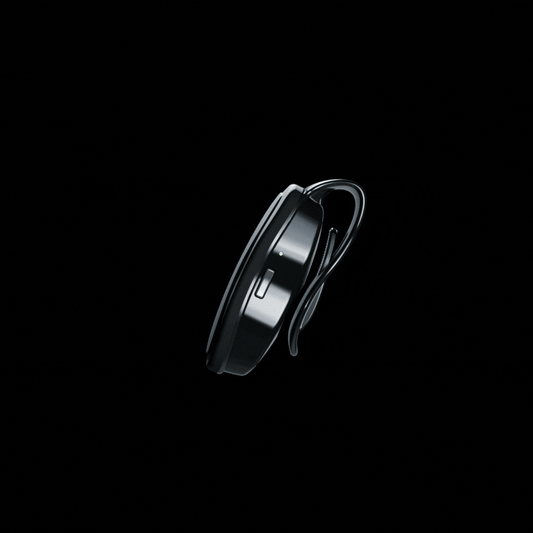Aging is a natural process that we all experience, but did you know there’s more to your age than just the number of candles on your birthday cake? When we think of age, most of us consider our chronological age, the number of years we've been alive. However, the way our bodies actually age can be quite different. This is where the concept of biological age comes in. To make it even more interesting, there’s a powerful health marker called Heart Rate Variability (HRV), which plays a significant role in determining how well (or poorly) we are aging biologically.
In this blog, we’ll break down the differences between chronological age and biological age, explain what HRV is, how stress impacts HRV and biological age, and how slow deep breathing, specifically Slow Deep Breathing at 6 breaths per minute (BPM), can help improve HRV, thereby slowing down biological aging.
Chronological Age vs. Biological Age: What's the Difference?
Chronological Age
Chronological age is the simplest way to measure how long someone has lived. It’s the number we celebrate every year on our birthdays. For instance, if you were born in 1990 and it’s now 2024, your chronological age is 34 years.
While this number is important, it doesn't always reflect how your body feels or functions. Two people can be the same chronological age but experience aging in vastly different ways. This brings us to biological age.
Biological Age
Biological age refers to how old your body actually is, based on various physical and physiological factors. It’s influenced by a combination of genetics, lifestyle choices, diet, stress levels, and environmental exposures. Some people might have a biological age that’s younger than their chronological age, meaning their body is aging slower than expected, while others may age faster due to poor lifestyle choices or chronic stress.
For example:
-
You might be 34 years old, but if you maintain a healthy lifestyle, eat a balanced diet, exercise regularly, and manage stress well, your biological age might be closer to 28.
-
On the other hand, if you smoke, eat unhealthy foods, rarely exercise, and experience chronic stress, your biological age could be closer to 40.
This difference is crucial because biological age is often a better predictor of longevity, quality of life, and disease risk than chronological age.
The Role of Heart Rate Variability (HRV) in Aging
Now that we know the difference between chronological and biological age, let's talk about an important marker that helps us understand how our body is aging biologically—Heart Rate Variability (HRV).
What is HRV?
Heart Rate Variability (HRV) measures the variation in time between each heartbeat. Contrary to popular belief, a heart that beats like a metronome—perfectly regular—is not ideal. Instead, a healthy heart adapts to the body's needs, speeding up when you’re physically active and slowing down during rest. This variation in heartbeats is a sign of flexibility and adaptability, which are indicators of a healthier cardiovascular system and a more balanced nervous system.
For example, if you measure your pulse and find that your heart beats 60 times per minute, each beat may not be exactly one second apart. Sometimes there might be a gap of 1.1 seconds, and sometimes 0.9 seconds. This variation is what we call HRV.
Why is HRV Important?
A higher HRV generally indicates that your body is more resilient and can handle stress well. In contrast, a lower HRV can signal that your body is under strain, has a reduced ability to recover from stress, or is aging faster.
-
High HRV is associated with a younger biological age, improved cardiovascular health, better emotional regulation, and a lower risk of chronic diseases like heart disease, diabetes, and hypertension.
-
Low HRV has been linked to faster aging, increased risk of heart attacks, poor emotional control, and a higher likelihood of chronic illnesses.
Studies have shown that HRV declines as we age, but the good news is that there are ways to improve it. One of the most effective ways is through slow deep breathing techniques, particularly resonant breathing at 6 breaths per minute.
How Stress Impacts HRV and Accelerates Biological Aging
The Stress-HRV Connection
Stress is a major factor in the decline of HRV. When we are under stress, our body activates the sympathetic nervous system, which is responsible for the "fight or flight" response. This system increases the heart rate, blood pressure, and releases stress hormones like cortisol. As a result, HRV decreases because the heart is forced to beat more regularly and in response to stress, limiting its natural variability.
When stress becomes chronic, this constant activation of the sympathetic nervous system leads to a prolonged state of reduced HRV. Over time, this weakens the heart’s adaptability, accelerates the aging process, and increases the risk of health problems such as:
-
Cardiovascular diseases: Low HRV has been linked to heart attacks, strokes, and hypertension.
-
Immune system suppression: Chronic stress weakens immune function, making the body more vulnerable to infections and slower to recover.
-
Cognitive decline: Stress and low HRV contribute to faster cognitive aging, memory problems, and even neurodegenerative diseases like Alzheimer’s.
How Stress Accelerates Biological Aging
When stress levels remain high, it directly affects biological aging. Here’s how it happens:
-
Shortened Telomeres: Telomeres are protective caps on the ends of your DNA strands. They naturally shorten as you age, but stress accelerates this process, leading to premature cellular aging.
-
Increased Inflammation: Chronic stress leads to higher levels of inflammation in the body. Inflammation is known to damage tissues and organs, accelerating aging and increasing the risk of age-related diseases like arthritis, cancer, and diabetes.
-
Damage to DNA Repair Mechanisms: Under stress, the body’s ability to repair damaged DNA decreases. This accumulation of DNA damage is a hallmark of aging and can contribute to the development of chronic diseases.
-
Hormonal Imbalance: Stress disrupts hormone balance, especially increasing cortisol, which, when chronically elevated, contributes to fat accumulation, muscle breakdown, and accelerated aging.
In short, chronic stress significantly reduces HRV and contributes to faster biological aging, making it crucial to find ways to manage stress effectively.
How Slow Deep Breathing at 6BPM Helps with HRV and Stress
Slow deep breathing, especially at a rate of six breaths per minute, also known as resonant breathing, has been scientifically proven to improve HRV and reduce the negative effects of stress. But how does it work, and why is it so effective?
The Science Behind Resonant Breathing
When we breathe slowly and deeply, our body activates the parasympathetic nervous system, often referred to as the "rest and digest" system. This part of the nervous system is responsible for promoting relaxation, slowing the heart rate, and improving digestion. By activating this system, slow deep breathing can help counteract the effects of stress and bring the body into a more balanced state.
On the other hand, when we’re stressed, the sympathetic nervous system—the "fight or flight" system—takes over. This increases the heart rate and reduces HRV, putting our body in a state of high alert. Chronically activating this system leads to faster aging, higher risk of diseases, and poor recovery.
By breathing slowly at six breaths per minute, we can shift the balance toward the parasympathetic system, improving our HRV and promoting a younger biological age.
How Does Resonant Breathing Improve HRV and Reduce Stress?
-
Increases Parasympathetic Activity
-
Balances the Autonomic Nervous System
-
Reduces Cortisol Levels
-
Regulates Blood Pressure
-
Improves Emotional Well-being
-
Promotes Better Sleep
Conclusion
Chronic stress can drastically reduce HRV, speeding up biological aging by disrupting the balance of the autonomic nervous system, shortening telomeres, and increasing inflammation and cortisol levels. However, practices like SDB @6 BPM have been scientifically proven to improve HRV, balance the nervous system, reduce stress, and promote better emotional and physical health. By adopting such techniques into your daily routine, you can not only manage stress more effectively but also improve your overall well-being and potentially slow down the biological aging process.References:-
- Accelerated Telomere Shortening in Response to Life Stress
- The Link between Chronic Stress and Accelerated Aging





